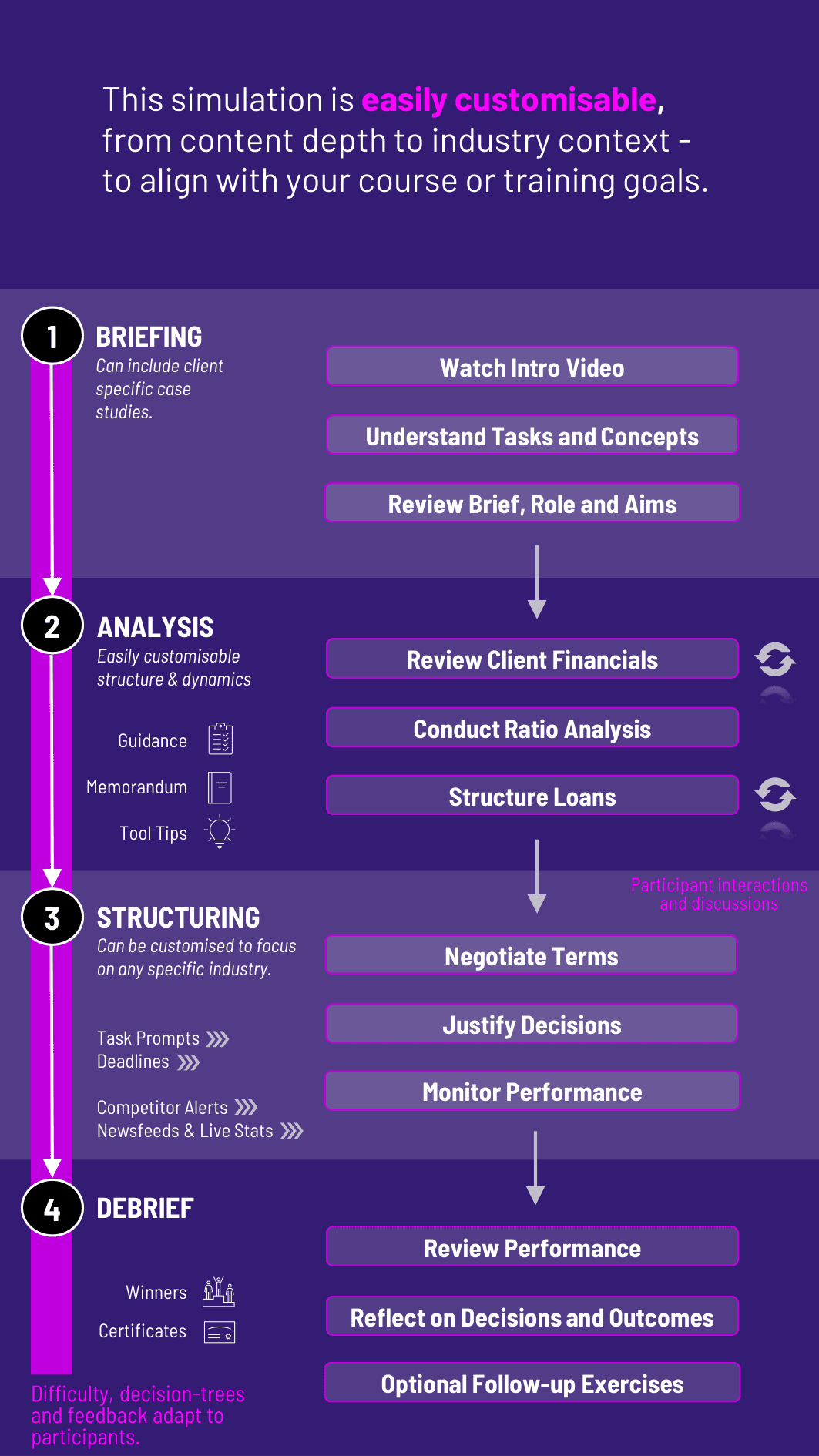
Participants take on the role of credit analysts, evaluating borrowers, interpreting financial ratios, and making real-time lending decisions in our Credit Risk Analysis Training.
Participants are introduced to foundational and advanced credit risk topics, including:
Financial Ratio Analysis: Liquidity, solvency, profitability, and coverage ratios
The 5 Cs of Credit: Character, Capacity, Capital, Conditions, and Collateral
Credit Scoring and Internal Ratings: Quantifying risk using scorecards and rating models
Covenant Structuring: Designing financial and operational covenants
Risk-Based Pricing: Aligning interest rates and loan structures with risk
Credit Approval Process: Navigating committees and risk reviews
Portfolio Risk Exposure: Balancing individual credit decisions with broader institutional exposure


In this single or multiplayer course, participants act as credit analysts at a commercial bank. Their responsibilities include:
Reviewing client financials, credit histories, and business models
Conducting ratio analysis to assess risk
Asking probing questions to clarify ambiguities in the borrower’s narrative
Deciding whether to approve, reject, or conditionally structure a loan
Setting repayment terms, covenants, and collateral requirements
Justifying decisions to senior credit officers or investment committees
Monitoring post-lending performance and identifying early warning signals
This course trains participants to think like credit professionals under time pressure and imperfect information. Participants learn how to:
Apply credit analysis frameworks to real business cases
Identify red flags in borrower data and qualitative disclosures
Align lending decisions with institutional policy and risk appetite
Structure loans to mitigate identified risks
Communicate credit rationales clearly and confidently
Evaluate evolving borrower performance and trigger responses when needed
What background knowledge is required? Basic understanding of financial statements and ratios is recommended. No prior experience in credit or lending is necessary.
Is this best for undergraduates or postgraduates? Both. The course can be calibrated in complexity - from introductory ratio analysis to advanced structuring and portfolio risk themes.
How long does the course run? The course can be completed in 4 - 5 hours for a single round or extended over multiple sessions for deeper analysis and committee-style reviews.
Can participants work individually or in teams? It supports both formats. In team play, participants role-play analysts, relationship managers, and risk officers.
How are participants assessed? Scoring is based on risk-adjusted return, default avoidance, covenant discipline, and clarity of justification presented to the committee.
Join this 20-minute webinar, followed by a Q&A session, to immerse yourself in the course.
or
Book a 15-minute Zoom demo with one of our experts to explore how the course can benefit you.